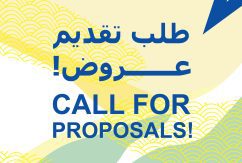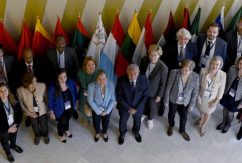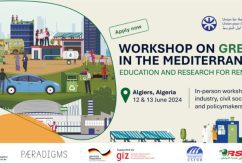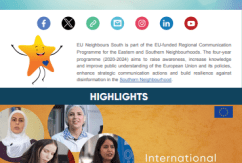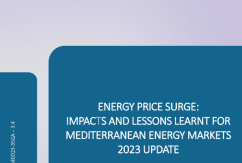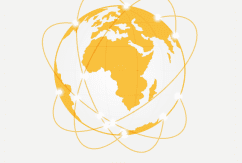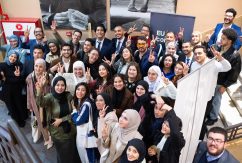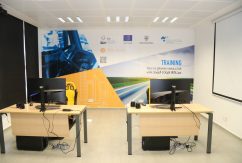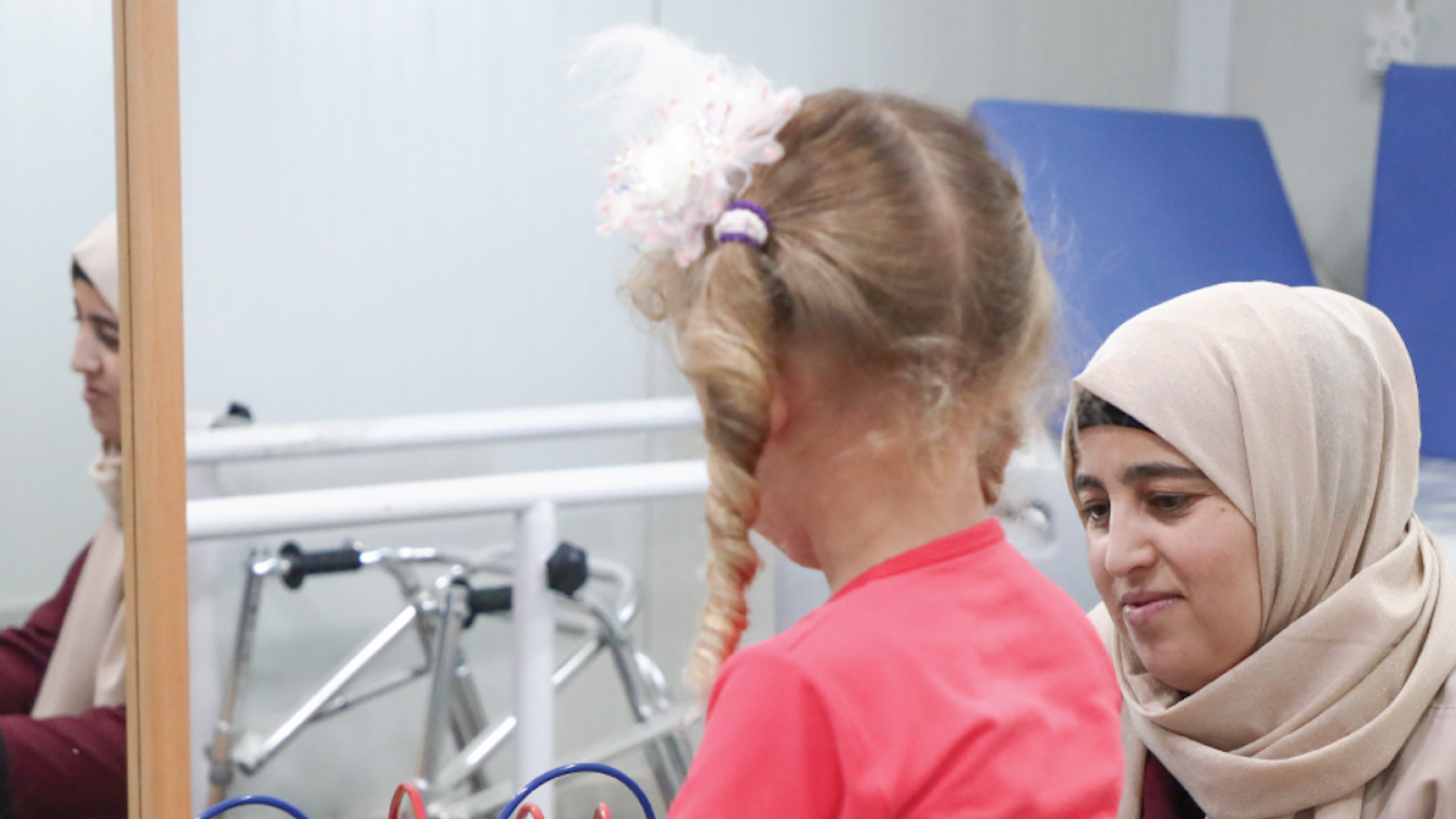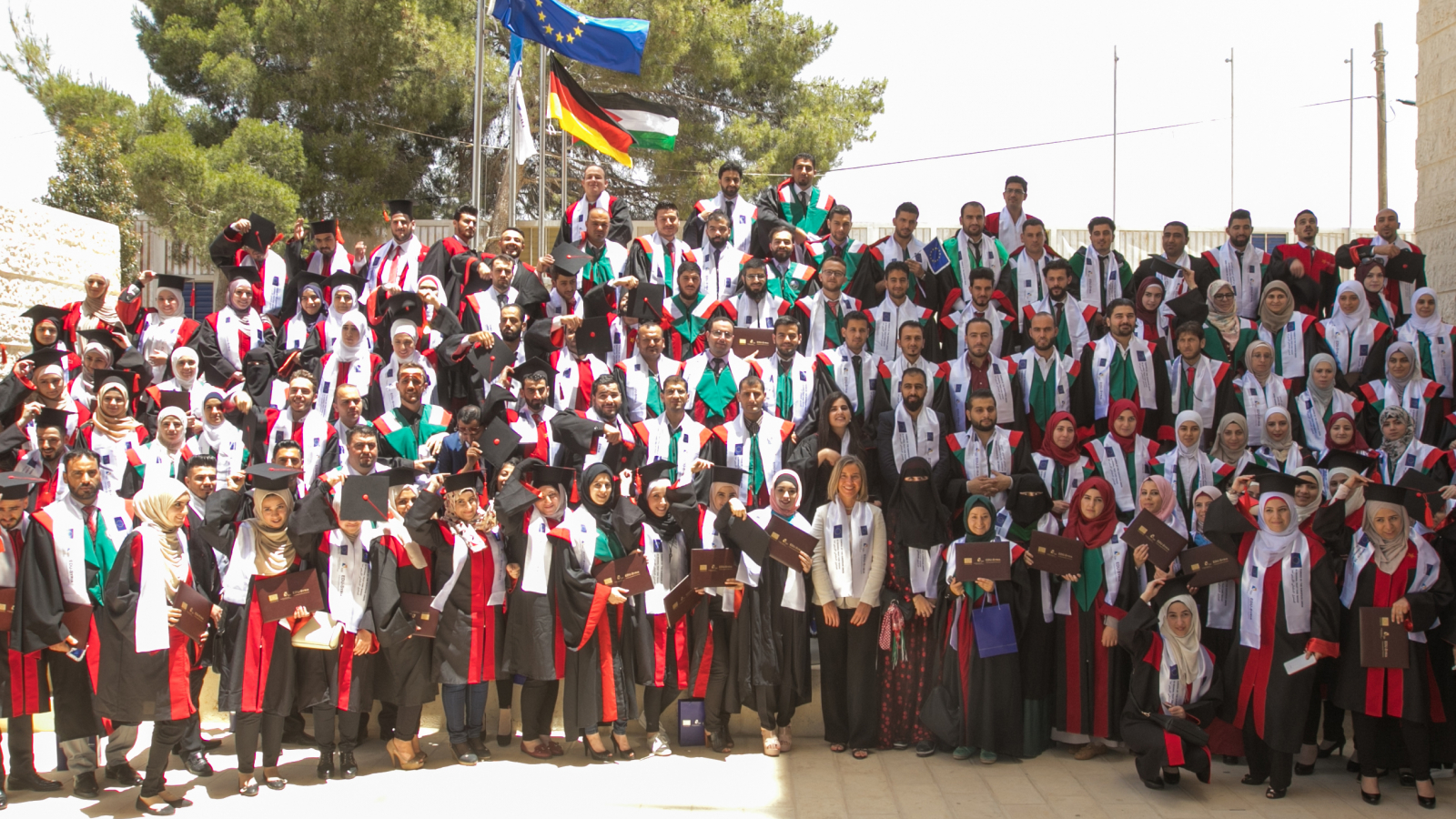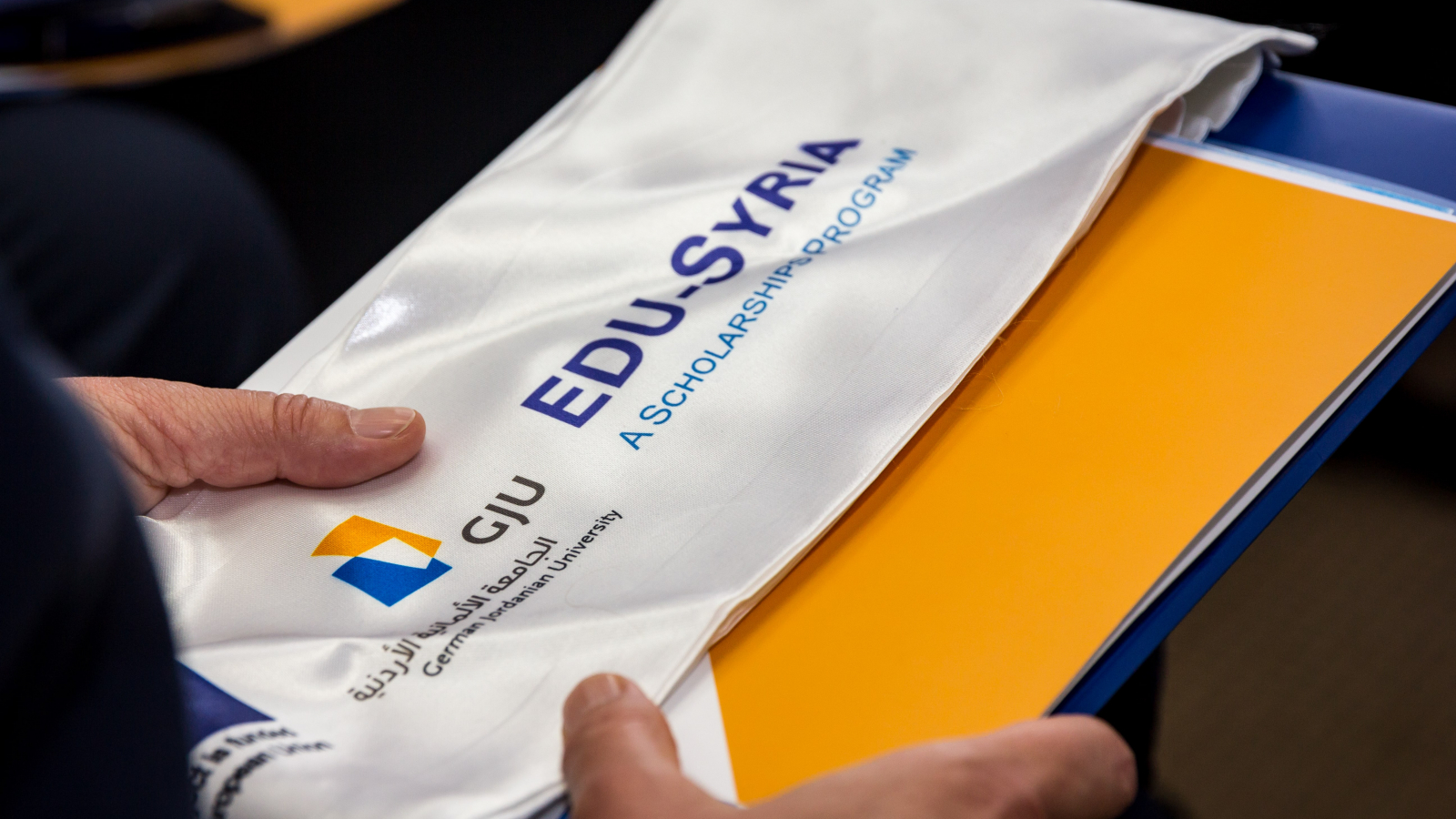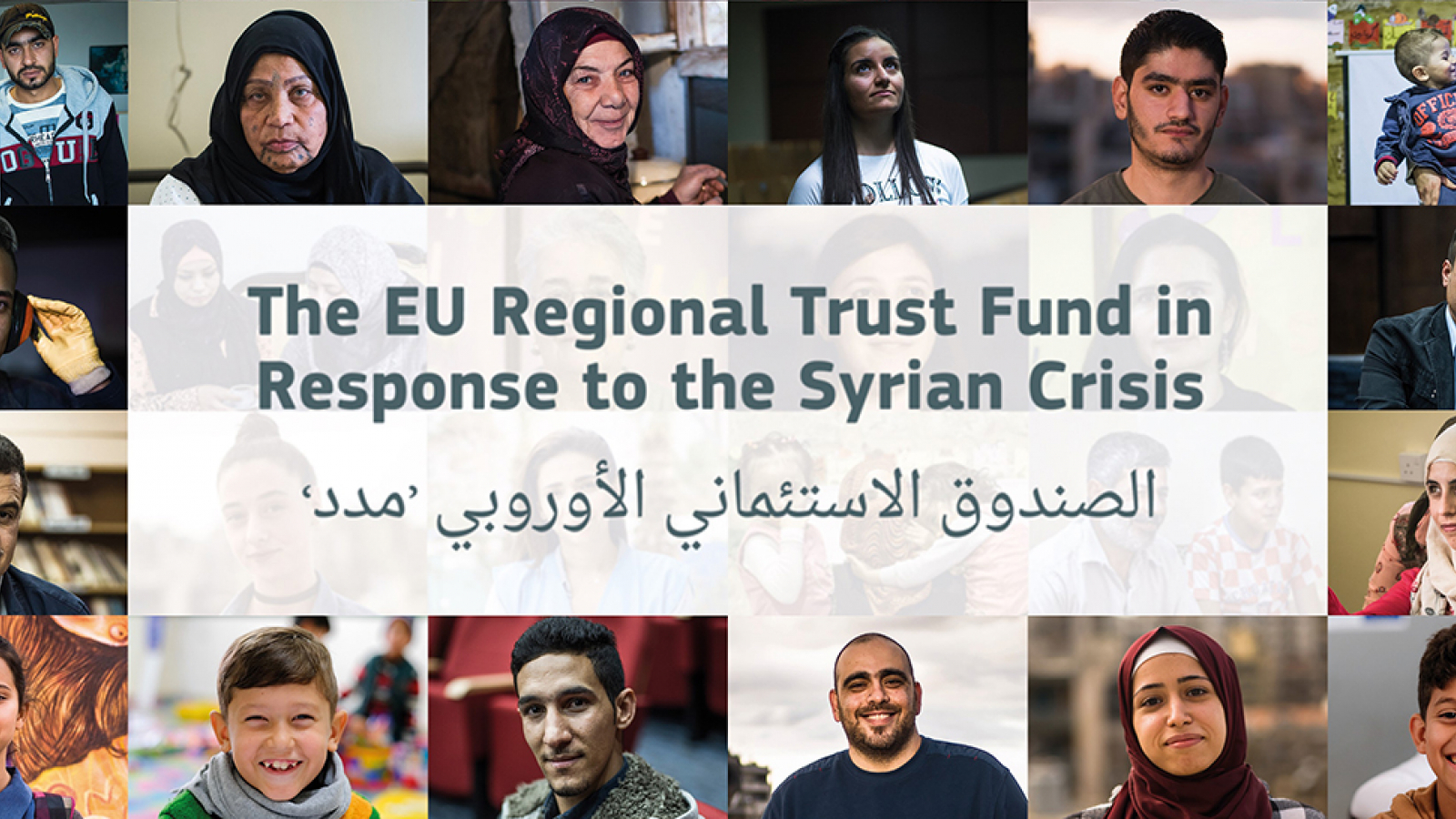Accessibility despite COVID-19: Syrian student beats the odds for inclusion
A brilliant student who graduated from an Educational Science degree at Zarqa University with a 92.7% GPA, Su’ad Nabulsi’s intelligence is only rivaled by her empathy and care for others.
The young Syrian refugee had always wanted to help others who had been uprooted from their homes, notably her peers in the Zaatari refugee camp located at the northern border with Syria. Home to almost 77,000 refugees, Zaatari is the largest and oldest Syrian refugee camp in Jordan. In recent years, the camp has undergone a shift from humanitarian relief services to development aid, reflecting the needs and aspirations of its residents. This gradual change has paved the way for more attention being dedicated to people with disabilities and special needs, which are at the core of Su’ad volunteering work.
Over the past two years, five accessible playgrounds have opened in the camp, and some 770 students with disabilities are currently being supported through resource rooms, shadow teachers, individual academic support, visual and hearing aids. “After I graduated and as the COVID-19 crisis hit the region, I volunteered with the Amal Center of the Arab Medical Relief Society (ACAMRS), an NGO focusing on individuals with special challenges and special needs.” Su’ad wanted to turn her newfound free time as a fresh graduate into an opportunity to chip in with the NGO’s activities.
“My tasks involve many different aspects, ranging from overseeing printing the case file for each person listed in the ACAMRS database and distributing them to the families to linking specialised professionals and therapists with the beneficiaries, as well as providing a weekly report on the beneficiaries’ progress.” Su’ad also conducts field visits to the beneficiaries’ homes, assisting those unable to use technology to communicate with their therapists. “As a result of the pandemic, the services provided by ACAMRS were interrupted. But I did not want to let that stop me, so I continued working as the contact person between ACAMRS and the beneficiaries.”
During her visits, Su’ad provides logistical support by installing the necessary equipment needed for the various physical, occupational, speech and language therapy. “I also sit down and perform these activities with the members of the household, in order to give the caregivers the instructions they need to continue supporting the beneficiary in his/her skills, physical, linguistic and other therapies.” Her visits also allow Su’ad to continue collecting the daily progress data from the beneficiaries’ caregivers, an essential feedback to update and tailor their Individualised Education Plan. “These IEP are adapted to each person and allow for the families to monitor their progress using the IEP to guide them,” Su’ad explains. She would not have been able to offer such services without the education she received as an EDU-SYRIA scholarship holder, funded by the European Union under the EU Regional Trust Fund in Response to the Syrian Crisis, the EU Madad Fund.
EDU-SYRIA
EDU-SYRIA is a host of projects that chronologically extended over the last five years and still going, 2015 and further. The projects are EU funded via MADAD in response to the Syrian crises. Hence, the primary beneficiaries are Syrian refugee and underprivileged Jordanian youths. The ultimate objective of the projects is to improve the livelihood of those beneficiaries by providing them with higher education opportunities through a cluster of scholarships that are granted every cohort of high school graduate since 2015.
EDU-SYRIA I was launched in late 2015 where a fund of 4 million Euros supported a total of 390 higher education accredited degree, master’s, bachelor’s, and vocational programs. Another MADAD grant was bequeathed, 11 million Euros, inaugurating EDU-SYRIA II, the second wave of the project, October 2016. The project was the largest in Jordan in terms of the number of the higher education degree scholarships that was awarded, specifically, 1000. The EU Regional Trust Fund in Response to the Syrian Crisis presented a smaller endowment of 2.6 million Euros in January 2019 allowing for additional 200 higher education degree scholarships. EDU-SYRIA III was launched in January 2020 with a fund of 15 million Euros. The components/actions of the last wave were more diversified in nature and design where some aiming to pick up the young adults who dropped out or leaked out of school. The direct total of beneficiaries is 2245 Syrian refugees and underprivileged Jordanians.
EU Regional Trust Fund in Response to the Syrian Crisis
Since its establishment in December 2014, a significant share of the EU’s non-humanitarian aid for Syria’s neighbouring countries is provided through the EU Regional Trust Fund in Response to the Syrian Crisis, the EU ‘Madad’ Fund. The Trust Fund brings a more coherent and integrated EU aid response to the crisis and primarily addresses economic, educational, protection, social, and health needs of refugees from Syria in neighbouring countries such as Jordan, Lebanon, Turkey and Iraq, and supports overstretched local communities and their administrations.
Read more
EU Delegation to Jordan website
EU Regional Trust Fund in Response to the Syrian Crisis Syria website
